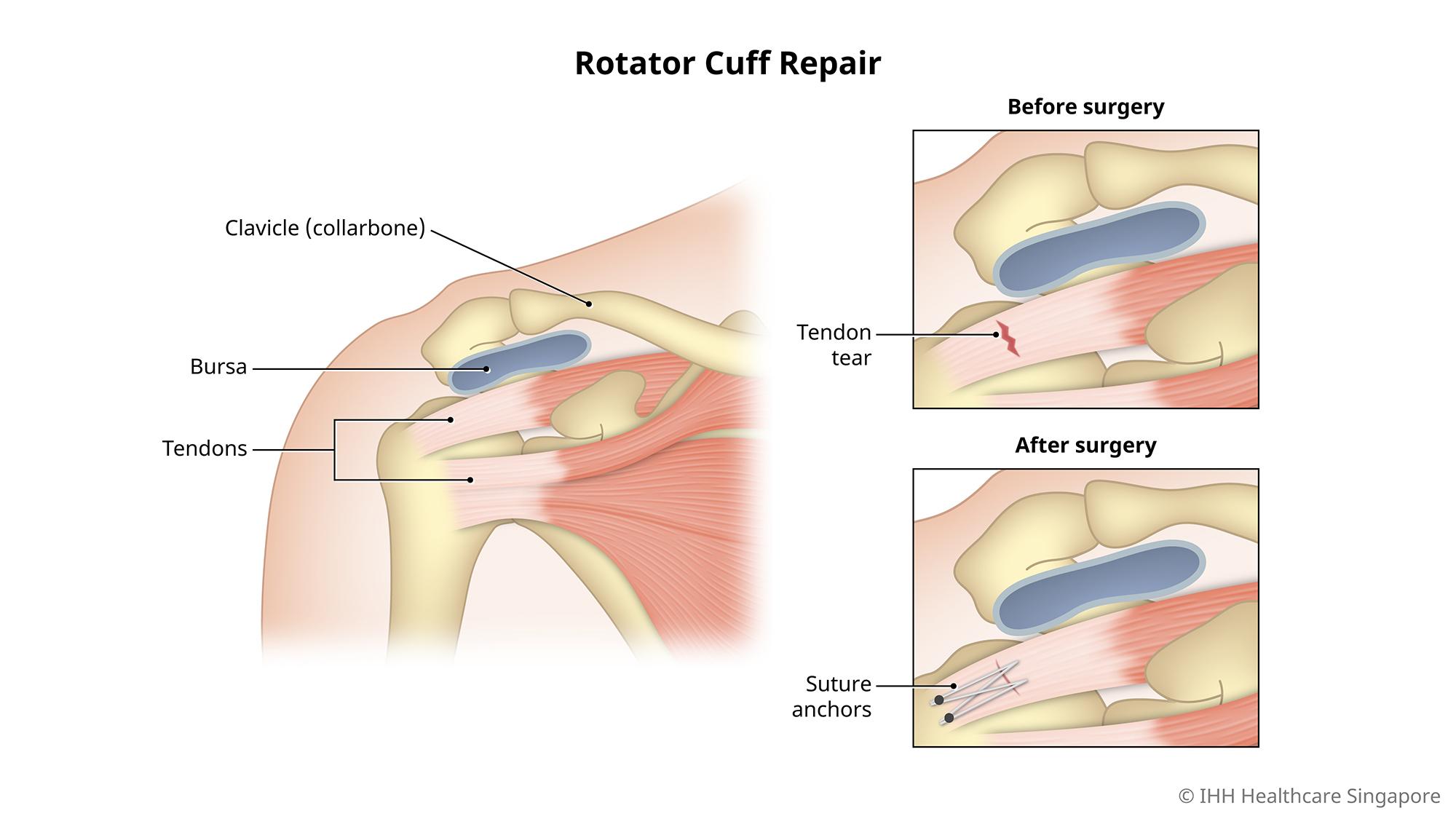Rotator Cuff Repair Surgery
What is rotator cuff repair surgery?
A shoulder rotator cuff repair is a surgery to repair torn muscles at the shoulder joint.
The shoulder joint is a ball and socket connection supported by a group of muscles and tendons that facilitate a wide range of 3-dimensional movements.
Acute injury, overuse and strain can cause tears in the rotator cuff muscles. Age-related wear and tear can also cause tendon degeneration.
How it works
Rotator cuff tears can be either partial or complete. A muscle that is frayed or damaged is considered a partial rotator cuff tear. A complete tear is when the damage extends all the way to the tendon or pulls the tendon off the bone.
Although rotator cuff tears can sometimes go unnoticed, especially if there is no shoulder pain, it is quite common to experience symptoms such as:
- Clicking or popping sound with movement
- Difficulty reaching behind the back
- Pain and tenderness during shoulder movement
- Progressive weakness of the shoulder
- Reduced range of movement
When do you need rotator cuff repair surgery?
Minor injuries to the rotator cuff can be managed non-surgically with:
- Anti-inflammatory medication to reduce swelling and pain
- Hot or cold packs
- Rest
- Rotator cuff exercises to restore muscle strength and increase motion range
You will need to undergo shoulder rotator cuff repair if you have serious or complete rotator cuff tears or injuries which do not heal completely. If left untreated, these symptoms could lead to frozen shoulder and arthritis.
Your doctor will suggest surgery when there is significant loss of shoulder function or persistent symptoms that are unresponsive to non-surgical treatment.
What are the risks and complications of rotator cuff repair surgery?
Shoulder rotator cuff repair is a safe procedure, with low risk of complications. However, like any other surgery, it carries a small risk.
Common surgical complications include:
- Allergic reactions to anaesthesia and other medication
- Breathing problems
- Bleeding, blood clots and infection
- Injury to tendons, blood vessels of nerves
- Permanent joint stiffness
- Recurrent tears of the rotator cuff






